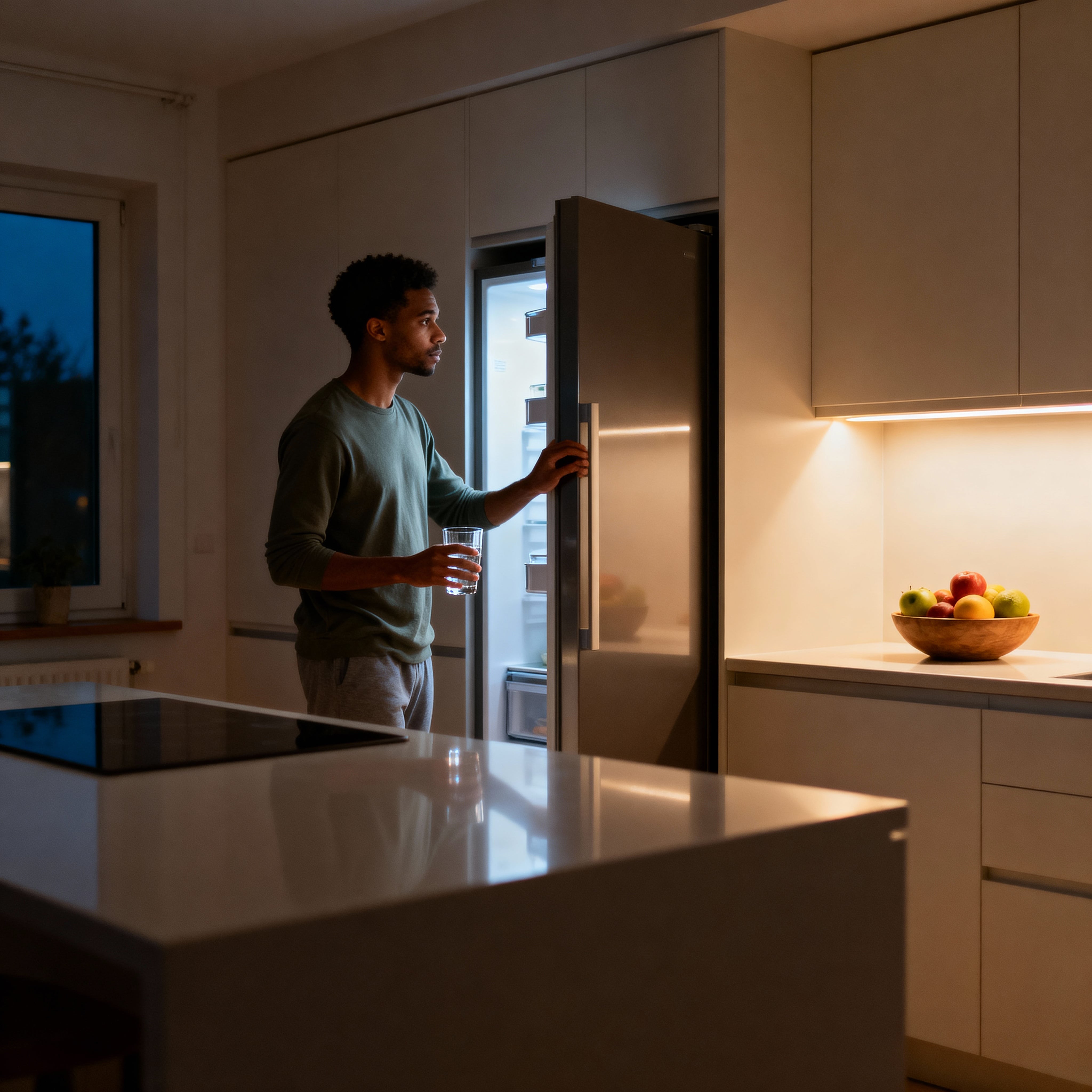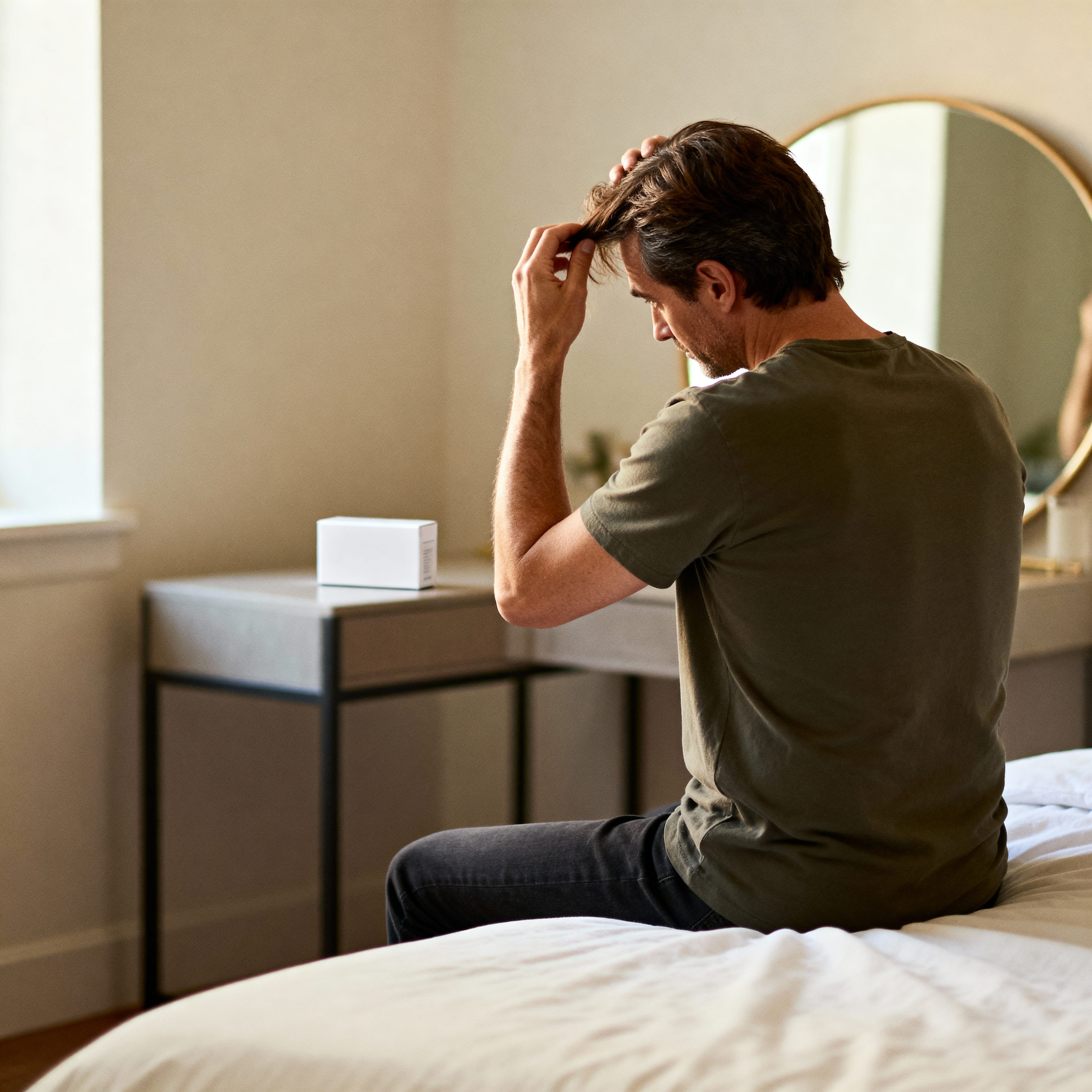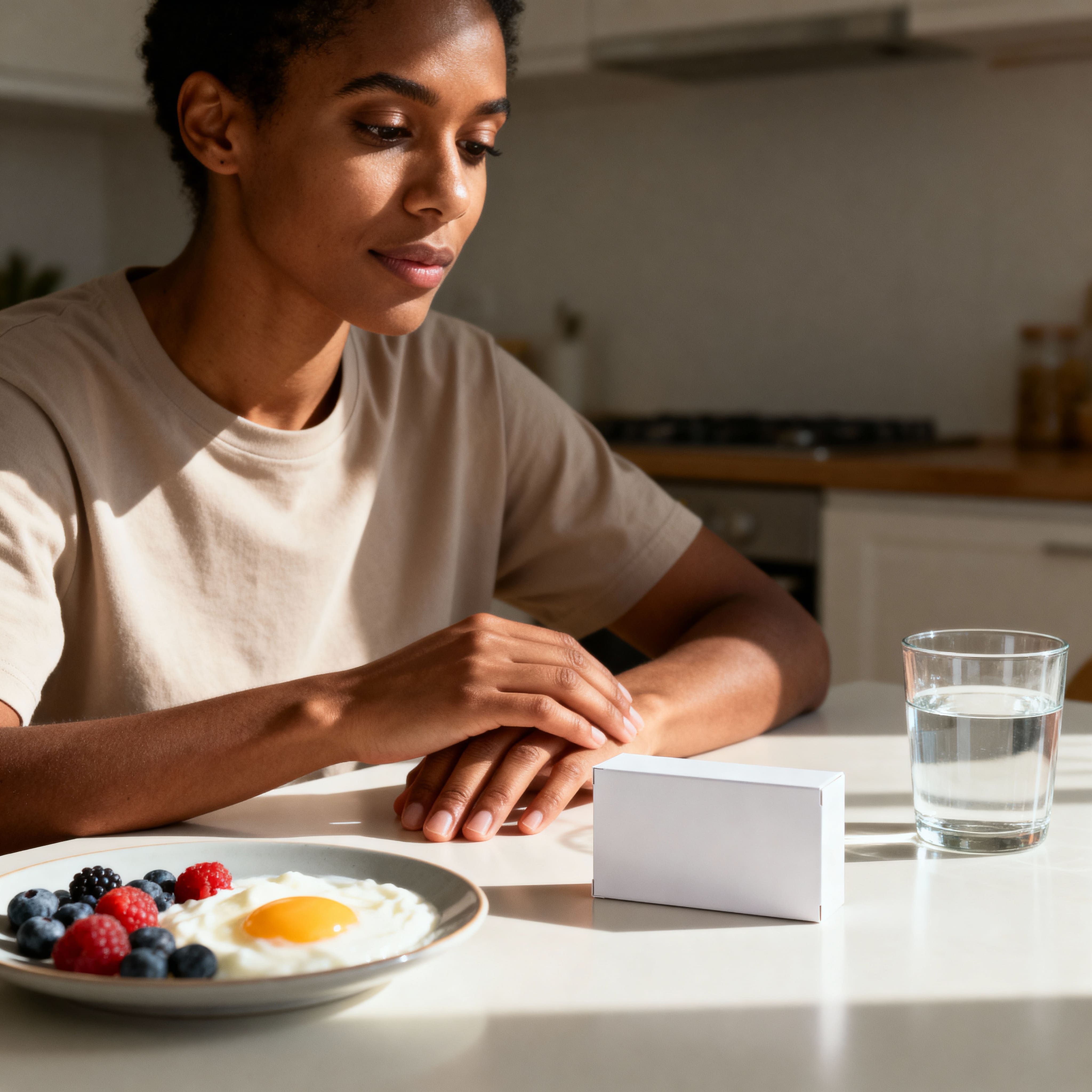How to Tackle Food Noise at Night While You Are on a GLP-1
Author
glp winnerDate Published
- Twitter
- Facebook
- LinkedIn
- Instagram
- Copy Link

Food noise can feel like a radio that will not turn off. Even when you are on a GLP-1 medication, those late-night cravings can still sneak in. This guide breaks down why it happens, what the science says, and simple ways to get back in control.
If you are new to GLP-1 therapy, you may also find our guide on How to Find a GLP-1 Provider Online helpful.
What Food Noise Actually Is
Food noise is the constant mental chatter about eating. It can feel like thinking about snacks when you are not hungry, feeling pulled toward the kitchen out of habit, or replaying cravings long after dinner.
Researchers describe this as a mix of reward pathways and learned patterns. The brain responds to food cues with dopamine, which can create strong urges that feel automatic. You can read more about how dopamine affects behavior from the National Institute on Drug Abuse.
Why Food Noise Can Still Happen on GLP-1s
GLP-1 medications help regulate hunger by slowing digestion and working with appetite centers in the brain. This effect is described in FDA information on semaglutide as used in Wegovy for chronic weight management from the U.S. Food and Drug Administration. But hunger hormones are only one part of the picture.
Food noise can continue because:
- Reward cravings are different from hunger.
GLP-1s help reduce appetite, but they do not erase emotional eating, habits, or reward-driven cues. The Cleveland Clinic notes that cravings often come from emotional or environmental triggers, not true hunger. - Evening routines can be deeply wired.
Habits like snacking during TV time can continue even if your stomach is full. - Stress and fatigue make cravings louder.
High cortisol levels can increase cravings and emotional eating. You can read more about this link from the Cleveland Clinic. - Timing or dose may not align with your routine.
People metabolize medications differently, so some feel stronger appetite signals at night. Only your clinician can guide dosing decisions.
Why Some People Experience Food Noise and Others Do Not
Food noise varies because of:
- Brain chemistry.
Some people have stronger dopamine responses to cues. - History with dieting or restriction.
If you have cycled through diets in the past, the brain may hold onto old food patterns more tightly. - Environment.
Late-night scrolling full of food videos, open snack cabinets, or unpredictable eating patterns can increase cue exposure. - Sleep quality.
Poor sleep increases ghrelin, a hormone linked to appetite. Harvard Health Publishing explains this connection clearly.
None of this means you are doing anything wrong. It means your brain is following old patterns.
How to Turn Down the Volume on Nighttime Food Noise
- Eat enough protein and balanced meals earlier in the day
Balanced meals help stabilize blood sugar, which reduces late-night cravings caused by long gaps without food. The Dietary Guidelines for Americans recommend balanced meals with lean proteins, healthy fats, and fiber.
If daytime intake is too low, nighttime cravings can surge even on a GLP-1. - Create a nighttime trigger break
If you normally snack while watching TV, change the pattern. Try a warm tea, stretching, or a different relaxing routine. - Use the “check your hunger” rule
True hunger builds slowly. Food noise pops up fast. Naming the craving reduces its intensity. - Shift the environment
Keep snacks out of sight or choose single serve options to remove friction at night. - Improve sleep consistency
Better sleep supports more stable appetite hormones. Harvard Health Publishing links better sleep habits to lower appetite and cravings. - Hydrate throughout the day
Mild dehydration can feel like hunger. The National Academies of Sciences, Engineering, and Medicine recommends about 2.7 liters of total fluids per day for women and 3.7 liters for men. Total fluids include water, tea, coffee, soups, and other beverages. - Time fluids around meals
Drinking large amounts during meals can increase nausea for some people on GLP-1 therapy. Many clinicians recommend spacing fluids throughout the day. If you feel nauseated when you drink with meals, adjust your timing and talk to your provider. - Talk to your clinician if cravings feel intense
Your provider can help you troubleshoot, especially if food noise gets worse or interferes with daily life.
FAQ: Food Noise on GLP-1s
Why do I still get food noise at night while taking a GLP-1 medication?
Food noise can continue because reward pathways work separately from appetite hormones. Even if physical hunger is lower, emotional cues, stress, and old habits can still activate cravings.
Do GLP-1 medications stop food noise for everyone?
No. GLP-1s help regulate hunger, but they do not overwrite dopamine based reward responses or long standing habits. People vary in how sensitive they are to food cues.
Is nighttime food noise a sign that my GLP-1 is not working?
Not usually. Food noise does not mean the medication failed. It often reflects old routines, stress, screen time, or inconsistent meal timing.
What can I do when nighttime food noise hits while on a GLP-1?
Try balanced meals earlier in the day, shifting evening routines, staying hydrated, improving sleep, or changing your environment to reduce triggers. If food noise stays intense, talk to your clinician.
Could my GLP-1 dose or schedule affect my nighttime appetite?
Possibly. Some people feel appetite changes depending on timing or dose. Only your clinician can adjust your medication safely.
Does dehydration look like hunger when taking a GLP-1?
Yes. Mild dehydration can feel like hunger or cravings. Total fluid intake counts, including water, tea, coffee, and soups, based on guidance from the National Academies of Sciences, Engineering, and Medicine.
If you enjoy posts like these, you can subscribe to receive newsletter updates.
Sources
Keep Reading

Learn how hydration works on GLP-1s—what counts, what doesn’t, and how to avoid nausea by timing your fluids the right way.

Meta Description: Curious if GLP-1 drugs cause hair loss? Learn how common it is, why it happens, how to prevent it, and what to do if it starts.

From access issues to mindset and side effects, here are the most common mistakes people make on GLP-1 therapy—and how to fix them.
